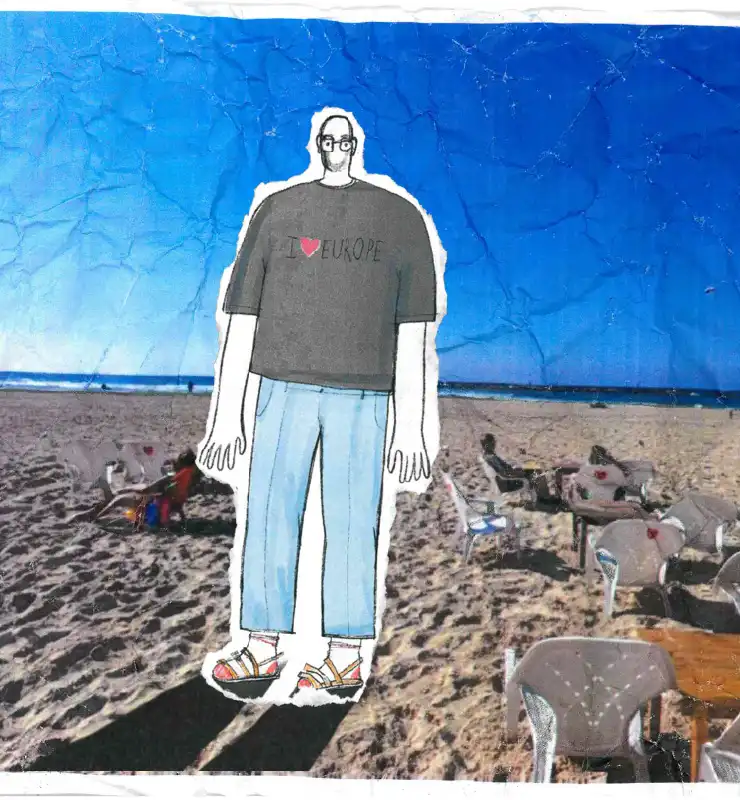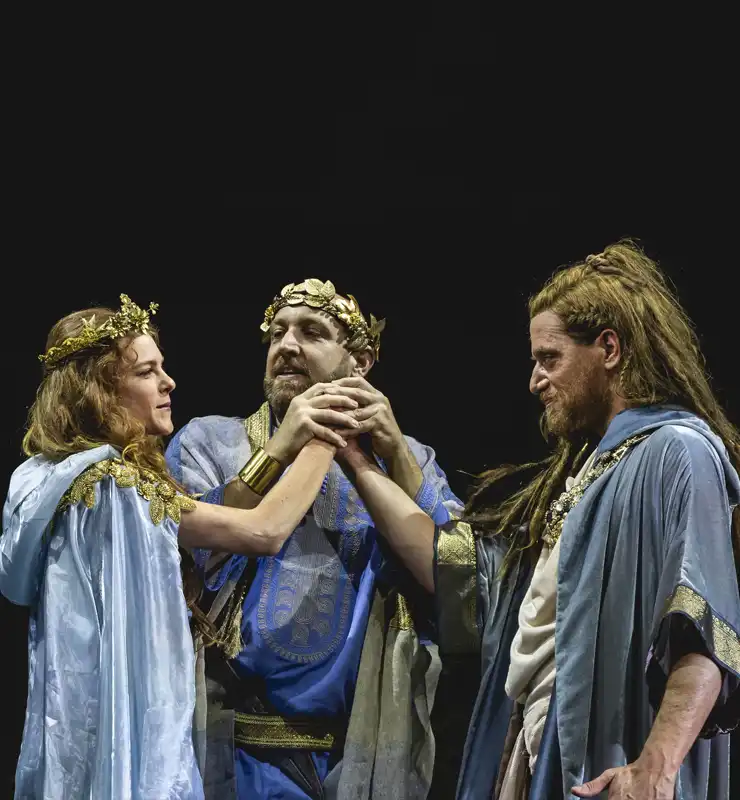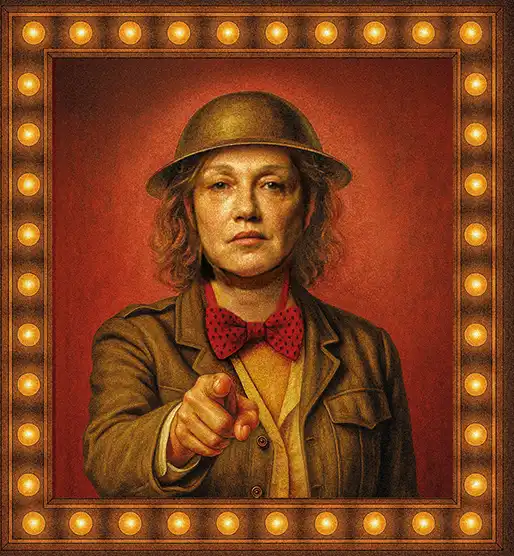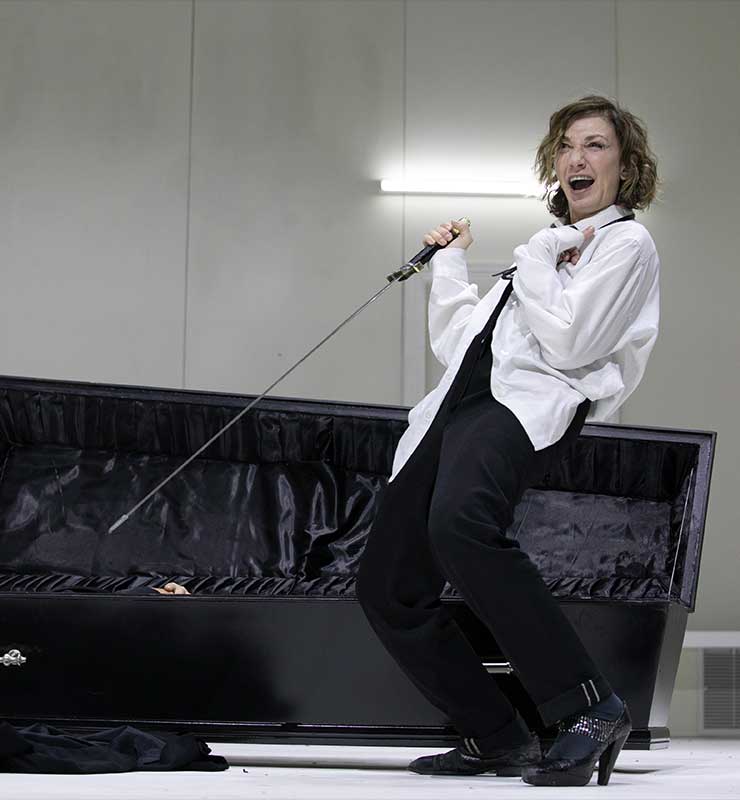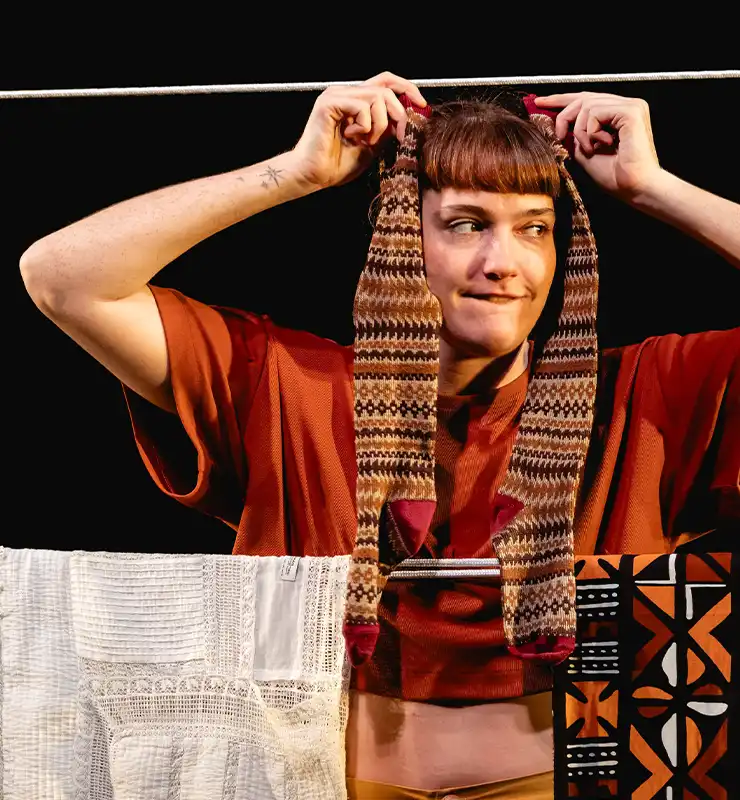Fathers and sons (2017)
Based on a novel by Ivan Turgenev
a play about us and about our time
Based on a novel by Ivan Turgenev
Stage adaptation, directing, choreography: Yehezkel Lazarov
"It's all romanticism, nonsense, rottenness, art. I'd better go to my frogs…”
Y. Bazarov
Set design: Zohar Shoef
Lighting Design: Nadav Barnea
Costume design: Alin Lazarov
Music: "LA FEMME", Frederic Chopin, Ólafur Arnalds
Sound Design: Michael Weisburd
Assistant director for speech: Yoni Lucas
Video-directing: Yehezkel Lazarov
Video-design: Ran Slavin
Video-playback: Stanislav Levor
Assistant director: Irena Orlov
The novel by Ivan Turgenev written nearly 160 years ago caused a revolution in the 19th century and remained modern in the 21st.
A classic is something that one rereads. And one rereads what is important here and now. The great writers of the past increasingly come to the aid of those, who are looking for solutions of today's problems, or - if you look even wider - for those, who seek the meaning of life.
In the center of the plot is the conflict between the generation of the "fathers", who protect their foundations and moral values, and uncompromising "sons", who reject outdated authorities and truths.
"Fathers and sons" is a play about us and about our time.
Cast:
Yevgeny Bazarov: Miki Leon
Arkady Kirsanov: Alon Friedman
Nikolai Kirsanov: Israel (Sasha) Demidov
Pavel Kirsanov: Doron Tavori
Vasily Bazarov: Boris Akhanov
Arina Bazarova: Fira Canter
Anna Sergeyevna: Netta Spiegelman
Katia: Roni Einav
Fenechka: Tali Osadchy
Aunt: Lillian Ruth
Timofeyich: Yevgeny Terletsky
Peter: Paolo E. Moura / Hilel Cappon
First performance: November 1, 2017
"Nihilism" comes from the Latin nihil, or nothing, which means not anything, that which does not exist. It appears in the verb "annihilate," meaning to bring to nothing, to destroy completely. Early in the nineteenth century, Friedrich Jacobi used the word to negatively characterize transcendental idealism. It only became popularized, however, after its appearance in Ivan Turgenev's novel Fathers and Sons (1862) where he used "nihilism" to describe the crude scientism espoused by his character Bazarovwho preaches a creed of total negation.
In Russia, nihilism became identified with a loosely organized revolutionary movement (C.1860-1917) that rejected the authority of the state, church, and family. In his early writing, anarchist leader Mikhael Bakunin (1814-1876) composed the notorious entreaty still identified with nihilism: "Let us put our trust in the eternal spirit which destroys and annihilates only because it is the unsearchable and eternally creative source of all life--the passion for destruction is also a creative passion!" (Reaction in Germany, 1842). The movement advocated a social arrangement based on rationalism and materialism as the sole source of knowledge and individual freedom as the highest goal. By rejecting man's spiritual essence in favor of a solely materialistic one, nihilists denounced God and religious authority as antithetical to freedom. The movement eventually deteriorated into an ethos of subversion, destruction, and anarchy, and by the late 1870s, a nihilist was anyone associated with clandestine political groups advocating terrorism and assassination.
The earliest philosophical positions associated with what could be characterized as a nihilistic outlook are those of the Skeptics. Because they denied the possibility of certainty, Skeptics could denounce traditional truths as unjustifiable opinions. When Demosthenes (c.371-322 BC), for example, observes that "What he wished to believe, that is what each man believes" (Olynthiac), he posits the relational nature of knowledge. Extreme skepticism, then, is linked to epistemological nihilism which denies the possibility of knowledge and truth; this form of nihilism is currently identified with postmodern antifoundationalism. Nihilism, in fact, can be understood in several different ways. Political Nihilism, as noted, is associated with the belief that the destruction of all existing political, social, and religious order is a prerequisite for any future improvement. Ethical nihilism or moral nihilism rejects the possibility of absolute moral or ethical values. Instead, good and evil are nebulous, and values addressing such are the product of nothing more than social and emotive pressures. Existential nihilism is the notion that life has no intrinsic meaning or value, and it is, no doubt, the most commonly used and understood sense of the word today.
Alan Pratt
Embry-Riddle University
U. S. A.
What I relate is the history of the next two centuries. I describe what is coming, what can no longer come differently: the advent of nihilism. . . . For some time now our whole European culture has been moving as toward a catastrophe, with a tortured tension that is growing from decade to decade: restlessly, violently, headlong, like a river that wants to reach the end. . . .
"Will to Power" by F.Nitshe
